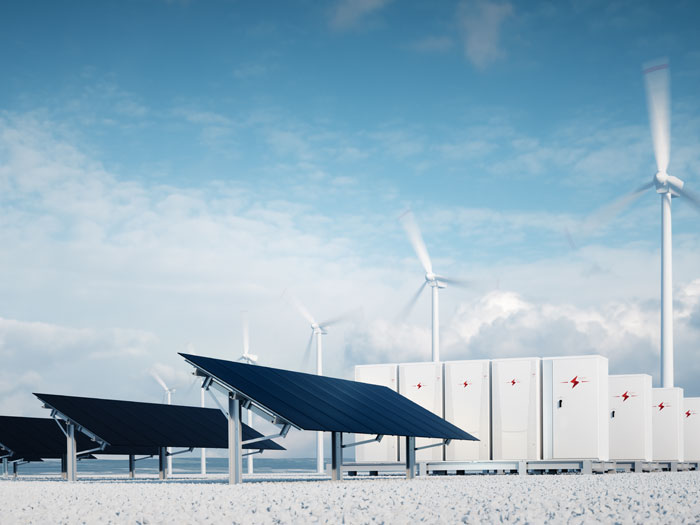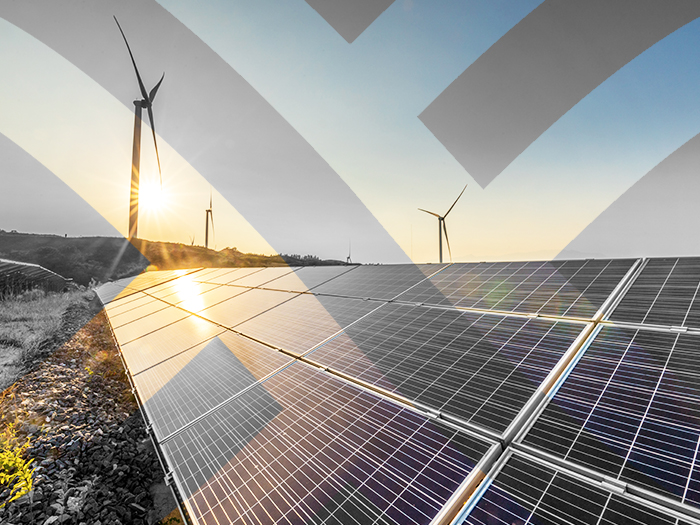Insights
better business decisions
Posted 2 years ago | 3 minute read

Government must act faster to deliver a reliable decarbonised power system
A fossil-free grid by 2035 is not possible and will not happen at current rates of renewable energy and nuclear power deployment, the Climate Change Committee (CCC) has warned.
In its latest report the government’s climate advisors said the government’s target of decarbonising the UK’s electricity generation fully by 2035, necessary to meet the long-term goal of reaching net zero greenhouse gas emissions by 2050, was achievable, but not without significant change.
A reliable, resilient, decarbonised electricity system can be delivered by 2035. This is needed to deliver emissions reductions in line with the path to Net Zero, while ensuring a reliable and resilient electricity supply and substantially reducing the UK’s dependence on imported fossil fuels.
The Government must give equal focus to low-carbon flexible solutions as to the full delivery of its existing renewables and nuclear commitments.
Decarbonising and expanding the electricity system will rapidly reduce the UK’s dependence on imported oil and gas, reducing in turn our exposure to volatile international prices.
Transforming the electricity system provides opportunities for growth. Currently, over 31,000 people across the UK are employed in offshore wind alone – this is set to rise to 97,000 by 2030, driven by £155 billion in private investment, with further investment and employment in solar and onshore wind.
The report set out 25 recommendations, including:
- For the government to publish a comprehensive long-term strategy for the delivery of a decarbonised, resilient, power system by 2035
- Creation of a minister-led infrastructure delivery group, advised by the new Electricity Networks Commissioner, to ensure enabling initiatives for energy infrastructure build are taken forward at pace, and necessary policy changes are implemented across the UK, to deliver a decarbonised and resilient power system by 2035
- To clarify urgently and formalise the institutional responsibilities of the Future System Operator, Ofgem and ministers, for strategic planning and delivery of the decarbonised, resilient system
- Through the Review of Electricity Market Arrangements, develop a strategy as soon as possible on market design for the medium- to long-term for a fully decarbonised, resilient electricity system in the 2030s and onwards
- Finalise funding mechanisms and allocate funding to support the development of 10GW of low-carbon hydrogen production by 2030
- Identify and address potential key supply chain bottlenecks for delivering up to 50GW of offshore wind by 2030
- Ensure that future system design explicitly plans for the range of climate hazards that will face the energy system over its lifetime
- Ensure new gas plant are genuinely CCS- and / or hydrogen-ready as soon as possible and by 2025 at the latest
GridBeyond Managing Director UK and Ireland Mark Davis said:
“As the UK moves to cleaner electric vehicles and heat pumps, demand for electricity is set to rise. There is a huge investment opportunity in a cleaner, cheaper electricity system, but alongside new windfarms, solar power and nuclear plants, the UK will need far more capacity to store electricity and this should be matched with action on the demand side to ensure the additional costs involved in balancing a low-carbon grid are as minimal as possible, particularly when compared to the cost of gas power.”

Building Net Zero
The path to net zero starts with accurate carbon accounting. But evaluating your performance can be challenging owing to the complexity of collecting and reporting on emissions data from multiple sources and changing standards for disclosures.
Learn more


